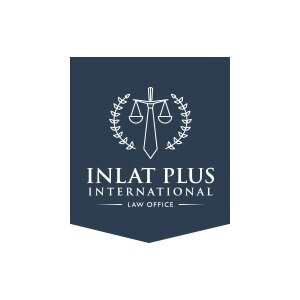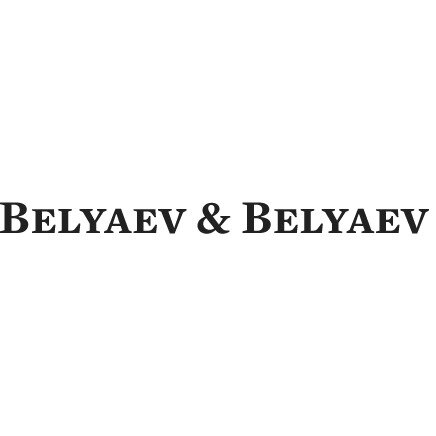Best Estate Planning Lawyers in Latvia
Share your needs with us, get contacted by law firms.
Free. Takes 2 min.
Or refine your search by selecting a city:
List of the best lawyers in Latvia
About Estate Planning Law in Latvia
Estate Planning in Latvia is an important legal process that involves making arrangements for the management and disposal of a person's estate both during their lifetime and after their death. This includes the preparation of documents such as wills, trusts, and power of attorney. Estate planning ensures that an individual's wishes are followed and can help prevent potential conflicts among heirs. Latvia's legal framework for estate planning is governed by both civil law principles and specific legislative provisions designed to uphold order, fairness, and fulfill testamentary wishes.
Why You May Need a Lawyer
Engaging a lawyer for estate planning in Latvia can provide several benefits, particularly in complex situations. Here are some common scenarios where legal assistance is advisable:
- Drafting a Will or Trust: To ensure that these documents meet all legal requirements and accurately reflect your intentions.
- Inheriting Assets: Handling the inheritance process can be legally complex, particularly when there are multiple heirs or the estate includes international assets.
- Minimizing Taxes: A lawyer can offer strategies to minimize inheritance tax and other fees.
- Family Business Succession: Legal expertise is crucial for ensuring a smooth transition of family-owned businesses.
- Guardianship and Powers of Attorney: Establishing guardianship for minors or adults with special needs and delegating authority legally requires careful planning.
Local Laws Overview
Key elements of the estate planning legal framework in Latvia include:
- Inheritance Law: Governed by the Latvian Civil Law, it outlines the rules for both intestate (without a will) and testate (with a will) succession.
- Wills: Must be notarized or handwritten by the testator. Latvia recognizes several different forms of wills, including public and private wills.
- Trusts: While not as commonly used as in some jurisdictions, trusts can be created in accordance with the applicable legal provisions.
- Inheritance Tax: Generally levied on estates, with specific rates and exemptions that may apply based on the relationship to the deceased and the value of the estate.
- Intestate Succession: If no will exists, the estate is distributed according to statutory regulations, favoring closest blood relatives.
Frequently Asked Questions
What is the first step in estate planning in Latvia?
The first step involves listing all your assets and liabilities, considering your family's needs, and consulting with a legal advisor to understand your options.
Can I write my own will?
Yes, you can write your own will in Latvia. However, it must be either handwritten by you or drafted and notarized to ensure legal validity.
How can I ensure my will is legally enforceable?
To ensure enforceability, your will should comply with Latvian legal requirements, including signing it in the presence of a notary or fulfilling specific provisions if it's a handwritten will.
What happens if I die without a will?
Your estate will be distributed according to the laws of intestacy, which prioritize next of kin starting with spouses and children.
Are there inheritance taxes in Latvia?
Yes, Latvia imposes inheritance taxes with rates varying based on the heir's relationship to the deceased and the estate's value.
What legal documents are important in estate planning?
Key documents include wills, trusts, powers of attorney, and potentially living wills or healthcare directives.
How can estate planning minimize family disputes?
By clearly specifying your wishes and distributing assets fairly or as intended, estate planning can minimize potential conflicts among heirs.
Can I update my will after it's made?
Yes, a will can be updated or revoked at any time as long as you are of sound mind and follow the proper legal procedures.
What role does a notary play in estate planning?
A notary in Latvia ensures that estate planning documents comply with legal requirements, provides official authentication, and can safely store the documents.
Is it possible to disinherit family members?
Latvian law allows disinheritance, but mandatory shares due to certain relatives, like children, cannot be denied entirely and must be legally respected.
Additional Resources
For further guidance on estate planning in Latvia, consider consulting the following resources:
- Latvian Council of Sworn Notaries: Provides information about the roles of notaries and how they can assist in estate planning.
- Latvia's State Revenue Service: Offers guidelines and specifics regarding inheritance taxes.
- Law Firms Specializing in Estate Planning: Local law firms can offer personalized advice and services.
- Ministry of Justice: Provides access to legal statutes and updates on civil law procedures.
Next Steps
If you require legal assistance in estate planning, the steps below can guide you:
- Consult a Lawyer: Choose a legal professional specializing in estate planning to ensure proper guidance.
- Gather Necessary Documents: Compile all related financial, personal, and business documents before your consultation.
- Discuss Your Wishes: Clearly articulate your intentions and how you'd like your estate managed and distributed.
- Create and Review Documents: Collaborate with your lawyer to draft valid legal documents and periodically review them.
- Store Documents Securely: Ensure all documents are filed with a notary or stored securely to prevent unauthorized changes.
Lawzana helps you find the best lawyers and law firms in Latvia through a curated and pre-screened list of qualified legal professionals. Our platform offers rankings and detailed profiles of attorneys and law firms, allowing you to compare based on practice areas, including Estate Planning, experience, and client feedback.
Each profile includes a description of the firm's areas of practice, client reviews, team members and partners, year of establishment, spoken languages, office locations, contact information, social media presence, and any published articles or resources. Most firms on our platform speak English and are experienced in both local and international legal matters.
Get a quote from top-rated law firms in Latvia — quickly, securely, and without unnecessary hassle.
Disclaimer:
The information provided on this page is for general informational purposes only and does not constitute legal advice. While we strive to ensure the accuracy and relevance of the content, legal information may change over time, and interpretations of the law can vary. You should always consult with a qualified legal professional for advice specific to your situation.
We disclaim all liability for actions taken or not taken based on the content of this page. If you believe any information is incorrect or outdated, please contact us, and we will review and update it where appropriate.
Browse estate planning law firms by city in Latvia
Refine your search by selecting a city.











